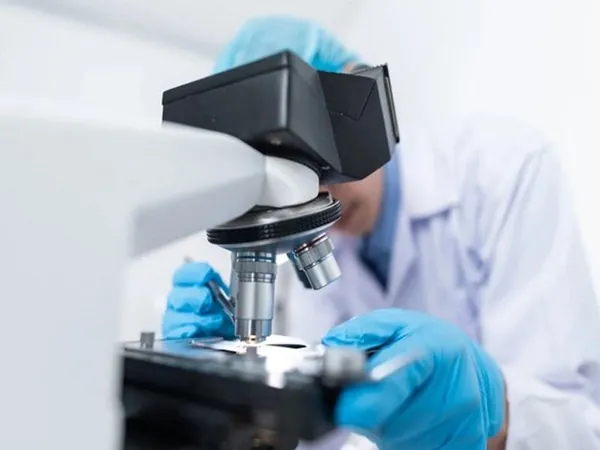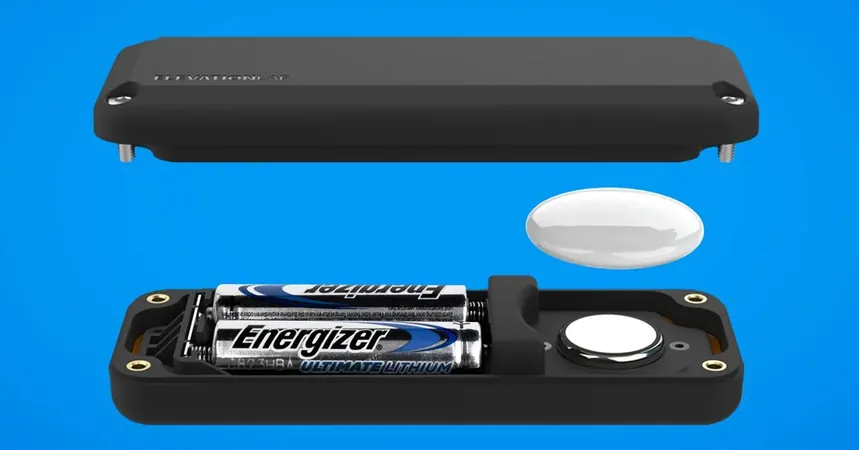
Groundbreaking Study Reveals How Stem Cells Interpret Mechanical Signals – A Game Changer for Treating Inflammatory Bowel Disease and Colorectal Cancer
2024-12-23
Author: Charlotte
A pioneering study conducted by The Hospital for Sick Children (SickKids) and the prestigious Institut Curie has unveiled crucial insights into how stem cells interact with their mechanical environment, shedding light on significant implications for inflammatory bowel disease (IBD) and colorectal cancer.
Stem cells play a vital role in maintaining organ and tissue health by constantly adapting to their surroundings, responding to both chemical signals and physical forces. When these processes malfunction, it can lead to severe health conditions, including IBD and colorectal cancer, where stem cells divide uncontrollably, forming tumors.
The intricate mechanisms by which stem cells detect and respond to physical forces have long been elusive. However, a team led by Dr. Meryem Baghdadi, alongside Dr. Tae-Hee Kim at SickKids and Dr. Danijela Vignjevic at the Institut Curie, has identified two crucial ion channels, PIEZO1 and PIEZO2, essential for stem cell survival in their latest research published in Science.
"The physical properties of the environment surrounding stem cells significantly impact our health," emphasizes Dr. Kim, a Senior Scientist specializing in Developmental and Stem Cell Biology. "With this newfound knowledge, we can explore innovative strategies to promote gastrointestinal regeneration, not just to prevent diseases but also to repair damaged cells."
Prior research conducted by Dr. Xi Huang in 2018 demonstrated that PIEZO channels influence tumor stiffness in brain cancer. Building on this foundational work, Kim’s research team explored the role of PIEZO channels in intestinal stem cell health.
In a groundbreaking preclinical model, the researchers eliminated PIEZO1 and PIEZO2 channels in the intestines, producing stark results. Without these channels, stem cells could not perform their essential functions, culminating in severe illness and rapid mortality. This study also highlighted an unexpected redundancy in PIEZO channel functions previously thought to be distinct.
The investigation revealed that PIEZO ion channels enable stem cells to perceive mechanical changes in their surroundings, such as stiffness and stretchiness. In the absence of these channels, critical signaling pathways became imbalanced, causing stem cells to overlook essential environmental cues and differentiate improperly.
"When PIEZO channels are absent, stem cells can no longer maintain their identity and hurriedly transform into other cell types, leading to serious health complications," explains Dr. Baghdadi.
The implications of this discovery are profound, particularly for conditions characterized by abnormal stem cell activity, like IBD—one of the fastest-growing health issues in Canada—and colorectal cancer, which ranks as the third most commonly diagnosed cancer nationwide.
As Dr. Kim notes, “Our findings underscore that cells are influenced by much more than just biochemical interactions; mechanical and chemical signals are essential drivers of cellular activity. Understanding how our bodies respond to these signals paves the way for new research avenues not only for digestive health but also for broader applications in human health."
This breakthrough is poised to open doors for innovative treatments and therapeutic approaches that could revolutionize the management of some of the most challenging medical conditions today. Keep an eye on this development as researchers continue to uncover the sophisticated interplay between stem cells and their environment!









 Brasil (PT)
Brasil (PT)
 Canada (EN)
Canada (EN)
 Chile (ES)
Chile (ES)
 España (ES)
España (ES)
 France (FR)
France (FR)
 Hong Kong (EN)
Hong Kong (EN)
 Italia (IT)
Italia (IT)
 日本 (JA)
日本 (JA)
 Magyarország (HU)
Magyarország (HU)
 Norge (NO)
Norge (NO)
 Polska (PL)
Polska (PL)
 Schweiz (DE)
Schweiz (DE)
 Singapore (EN)
Singapore (EN)
 Sverige (SV)
Sverige (SV)
 Suomi (FI)
Suomi (FI)
 Türkiye (TR)
Türkiye (TR)